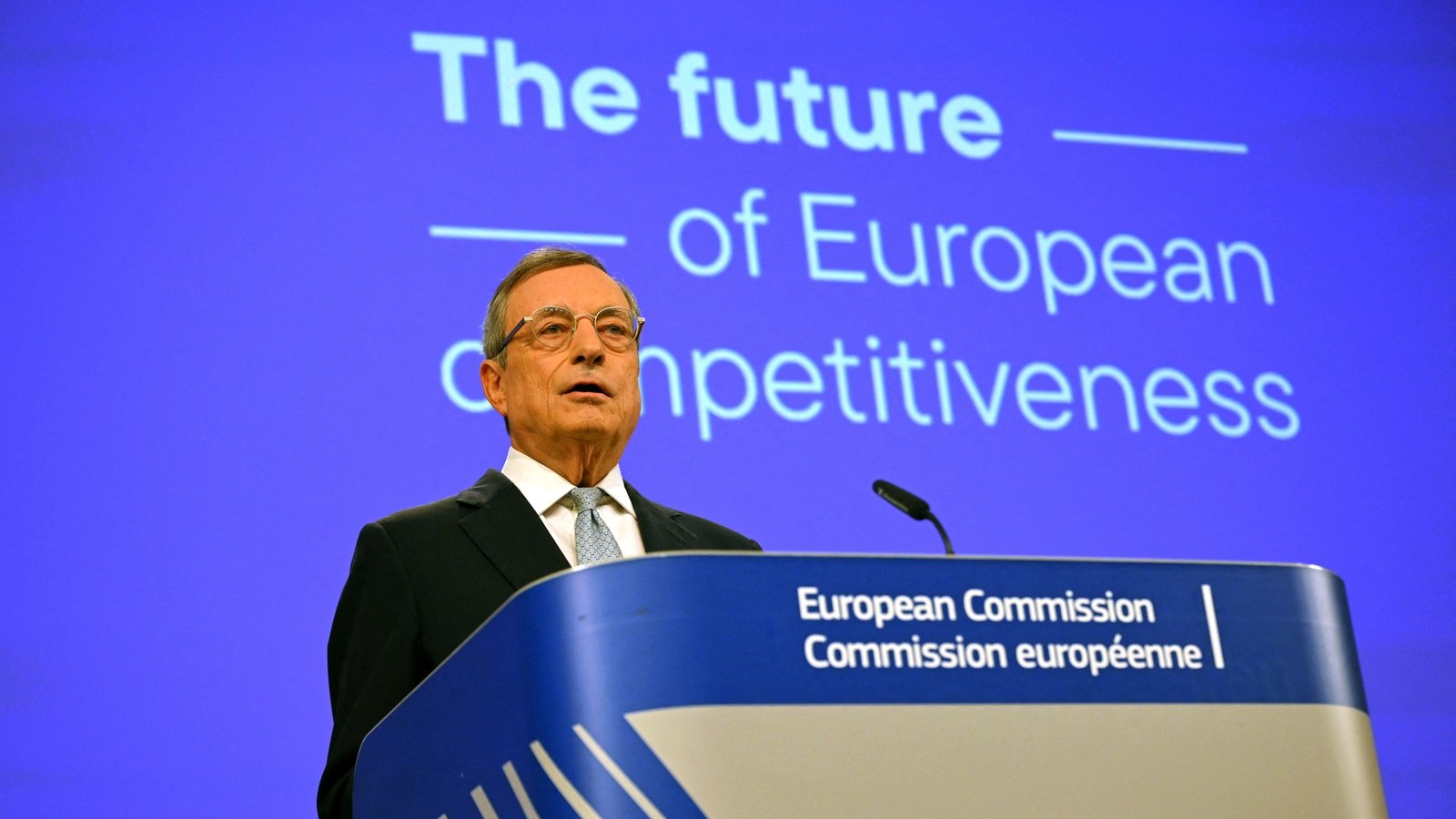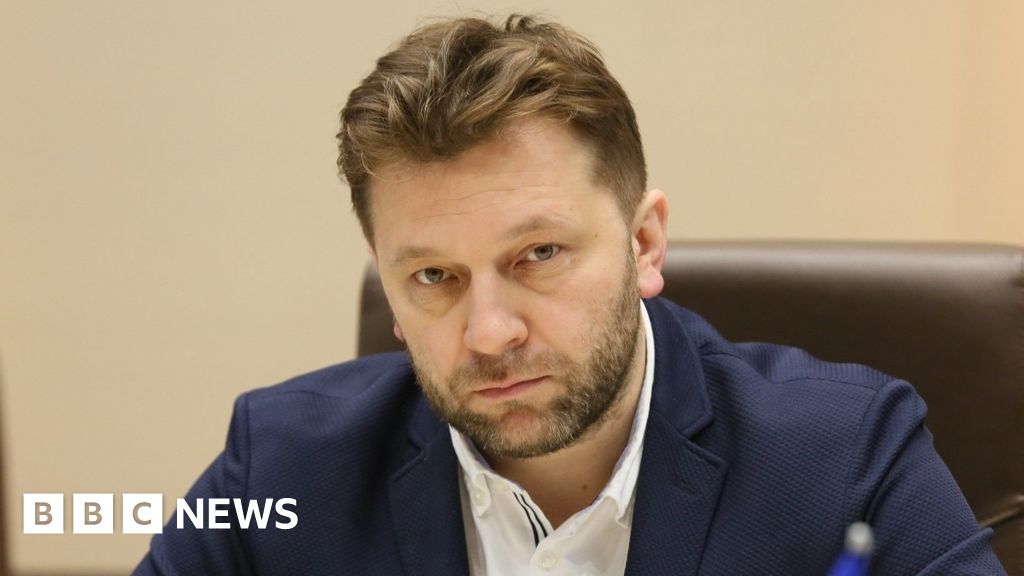Bussiness
Draghi urges reform, investment drive to revive EU

European growth has been falling behind that of the US since the beginning of the 21st century, while a more uncertain global trading picture threatens to further undo EU growth prospects, according to an eagerly awaited report by former ECB president Mario Draghi.
The report says a GDP gap has opened up between the US and Europe thanks to a slowdown in productivity, with EU households paying the price in lost living standards.
Launching the report in Brussels, Mr Draghi issued a stark warning about the European economy.
“For the first time since the Cold War, we must genuinely fear for our self-preservation and the reason for a unified response has never been so compelling,” he told a news conference.
Mr Draghi said the EU needed additional investment of between €750-800 billion a year, or up to 5% of GDP, in order to meet the EU’s green transition, digitalisation and security needs.
More streamlined decision making on economic and industrial policies were also needed if the gap between the EU and the US and China is to be bridged.
The report was commissioned by the European Commission President Ursula von der Leyen a year ago, with the former Italian central banker being asked to explore ways the EU can increase competitiveness amid rising global insecurity and economic challenges.
Its publication comes as Ms Von der Leyen prepares this week to launch a new college of commissioners under her second term as president.
Mr Draghi said that while the EU economy had shown some resilience following the global financial crises between 2008-2012, it was now facing the rising economic power of China and a more unstable international trading paradigm.
“Growth has been slowing down for a long time in Europe, but we’ve ignored (it),” he told a news conference.
“Now we cannot ignore it any longer. Now conditions have changed: world trade is slowing, China is actually slowing very much and is becoming much less open to us, we’ve lost our main supplier of cheap energy, Russia,” he stated.
The report suggested that member states had already responded to the new realities, but they were hampered by a lack of coordination.
European capitals spending differing levels of subsidies meant the single market was fragmenting, and thereby limiting the scale required for Europe to compete on the global level.
The report recommends a shift in EU decision making, with some member states being able to move faster than others, should they wish.
This could involve extending the use of so-called Qualified Majority Voting (QMV) in certain areas, meaning a potential reduction in member state vetoes.
Mr Draghi suggested that boosting innovative companies at EU level could require more harmonisation of corporate law and insolvency rules, “as well as a few key aspects of labour law and taxation…[which] could be explored under enhanced cooperation by willing member states.”
“Enhanced cooperation”, which is provided for under existing EU treaty rules, would mean some member states moving faster than other countries in key areas.
The report states that greater economic growth and productivity “will require refocusing the work of the EU on the most pressing issues, ensuring efficient policy coordination behind common goals, and using existing governance procedures in a new way that allow member states who want to move faster to do so.”
Mr Draghi has highlighted the EU’s sluggish performance in the tech sector, relative to the US, as a key concern.
“Technological change is accelerating rapidly,” the report says.
“Europe largely missed out on the digital revolution led by the internet and the productivity gains it brought: in fact, the productivity gap between the EU and the US is largely explained by the tech sector,” it stated.
“The EU is weak in the emerging technologies that will drive future growth. Only four of the world’s top 50 tech companies are European. Yet, Europe’s need for growth is rising,” it added.
Referring to the EU’s huge Covid recovery fund, Mr Draghi argued it should issue new “common debt instruments… to finance joint investment projects that will increase the EU’s competitiveness and security.”
However, with a number of northern European countries deeply sceptical about mutualising debt, he said common loans would only be possible if “the political and institutional conditions are met”.
Another solution, he said, was to better mobilise private capital in the EU, advocating for progress on the long-stalled push for an EU “capital markets union.”










